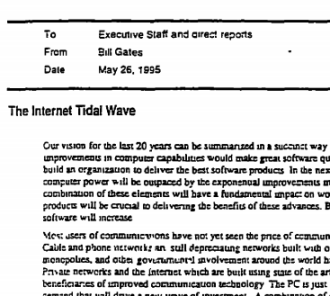
Funny thing, there I was two days ago, at Google’s
annual conference, watching Larry Page get asked questions so pliant in nature they couldn’t be called softballs. They were more like tee balls – little round interrogatives gingerly placed on a plastic column for Page to swat out into the crowd. Not that we would expect anything else – to be clear, this is Google’s event, and I see nothing wrong with Google scripting its own event. I had moderated the final session of the day, but Larry was the final speaker. Perhaps wisely, Google brought someone else on to “grill” Page – those were his words as the interview started. (You be the judge – a sample question: “What are your thoughts about tablets in schools?”)
Anyway, I was certainly not the right choice to talk to Larry. I know the folks at Google well, and have tons of respect for them. We both know I would have insisted on asking about a few things that were, well, in the news at the moment of that interview on Tuesday. Like, for example, the fact that Google, on the very next day, was going to announce the launch of Calico, a company seeking to solve that “moonshot” problem of aging. Oh, and by the way, current Apple Chair and former Genentech CEO Arthur Levinson was going to be CEO, reporting to Page. Seems like pretty interesting news, no? And yet, Larry kept mum about it during the interview. Wow. That’s some serious self control.
And yet I think I understand – each story has its own narrative, and this one needed room to breathe. You don’t want to break it inside an air-conditioned ballroom in front of your most important clients. You want to make sure it gets on the cover of Time (which it did), and that the news gets at least a few days to play through the media’s often tortured hype cycle. It’s grinding its way through that cycle now, and I’m sure we’ll see comparisons to everything from Kurzweil (who now works at Google) to Bladerunner, and beyond.
Read More







